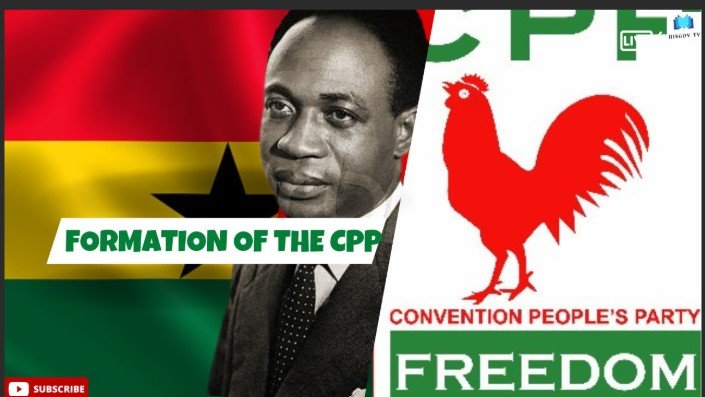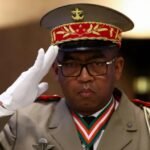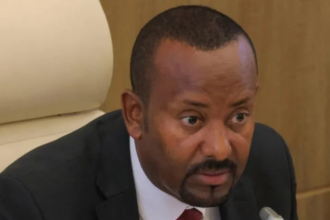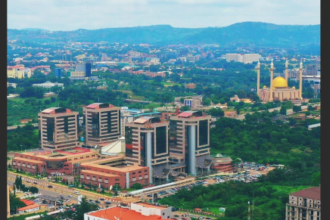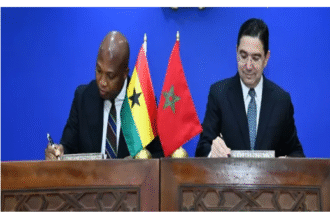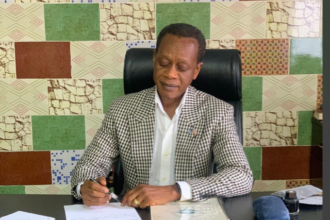By Lamin Guèye
ACCRA, GHANA – As Ghana approaches its next presidential election cycle, the nation finds itself at a critical juncture, grappling with the question of who will lead its future. While the traditional political heavyweights – the National Democratic Congress (NDC) and the New Patriotic Party (NPP) – continue to dominate the discourse, a growing sentiment among Ghanaians points to a yearning for fresh ideas and a vibrant, untainted leadership, potentially opening the door for alternative political forces.
The upcoming contest will see current President John Dramani Mahama, a prominent figure in the social-democratic NDC, ineligible in making another bid for the presidency. The NDC, founded by the late charismatic Captain Jerry John Rawlings, has a deep-rooted history in Ghana’s Fourth Republic. Similarly, the NPP, the party of erstwhile President John Agyekum Kufuor and former President Nana Akufo-Addo, is expected to present its next flagbearer, continuing its center-right legacy. Ghanaians are not impressed with both political parties and are demanding a fresh look and new approach which draws them.
Critics and observers are increasingly voicing concerns that both the NPP and the NDC, despite their significant roles in Ghana’s democratic evolution, have struggled to offer truly innovative ideas and strategies demanded by a rapidly modernizing Ghana. This perception of a lack of fresh policy impetus has fueled speculation about the electorate’s willingness to look beyond the two dominant parties.
Historically, Ghanaian politics has been shaped by formidable personalities and robust party structures. The NPP, for instance, has seen its share of internal dynamics, including past tensions where former President Kufuor notably criticized Nana Akufo-Addo over issues of party unity. Such episodes highlight the complexities and internal struggles that have often characterized the country’s main political players.
Amidst this backdrop, many Ghanaians are casting their gaze back to history, particularly to the foundational principles and stewardship of parties like the Convention People’s Party (CPP). Founded in 1949 by Ghana’s first and founding president, Kwame Nkrumah, the CPP holds immense historical significance as the party that led the nation to independence. It is remembered as a mass-based movement committed to social justice, national unity, and the eradication of underdevelopment.
This historical reflection, however, comes with a contemporary twist: a strong focus on a young and vibrant leadership. The desire is not merely for a return to past ideologies but for a revival of Nkrumah’s vision through a new generation of leaders capable of adapting it to present-day challenges. The CPP’s historical manifesto, with its emphasis on national development and unity regardless of ethnic or racial background, resonates with those seeking a holistic and inclusive approach to governance.
The current political landscape suggests a potential shift in voter preference. If the NDC and NPP are perceived as failing to offer groundbreaking solutions to issues ranging from economic development and job creation to education and healthcare, the stage could be set for a rejuvenated third force. Whether this takes the form of a revitalized CPP or an entirely new movement, the demand for leadership that can inject fresh perspectives and tangible, innovative strategies into national governance is palpable.
As Ghana prepares for its next electoral chapter after Mahama’s second term, the question remains whether the nation will continue its two-party tradition, or if a new era, potentially led by a youthful and dynamic third party, is on the horizon, ready to redefine Ghana’s political trajectory. The coming years will undoubtedly test the resilience of Ghana’s democratic institutions and the aspirations of its citizens for a truly innovative future.


